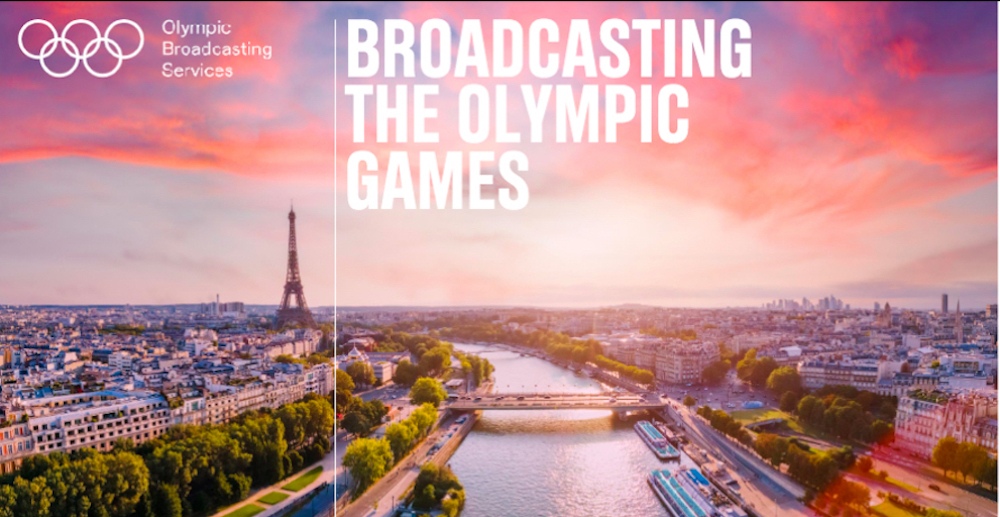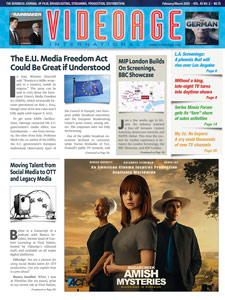At first, the French — Parisians in particular — were unhappy about their government spending 9 billion euro (U.S.$9.82 billion) to stage the 2024 Paris Olympics. They also objected to the expected extra visitors. Indeed, in a national pre-Olympic survey only 12 percent of French people were enthusiastic about the Games.
The situation changed once the Games started and France began winning many medals. The French quickly warmed up to their athletes, in particular to swimmer Leon Marchand, who received as much TV airtime in the U.S. as he did in France. By opening day only the visiting athletes were complaining about the French food served at the Olympic Village, but many TV viewers from around the world (except for those in France) were complaining about the coverage.
“France TV covered the Olympic Games on its three main channels: France 2, France 3, and France 5. The only programs broadcast on France 2 and France 3, apart from the news, are the Olympic Games. France 5 devoted half of its programs to the Games. On the other two main channels, TF1 and M6, 90 percent of the news was devoted to the Games. Since the beginning of the Paris Games, apart from on the all-news channels, France TV viewers have almost no information other than the Games.
In France we are very proud of the organization of these Olympics. Everyone seems very satisfied in terms of mass transit, access to the competition, access to fan zones, reception by the public, and security,” said Caroline Intertaglia, VideoAge’s Cannes-based contributor.
“The U.S. TV coverage of the Olympics on [broadcast network] NBC offered the usual diet of human-interest stories, athletes’ background information, plenty of commercials, and very little of the games themselves, with the exception of swimming and gymnastics. During the weekend, track and field made a screen appearance, but football (soccer) was nowhere to be found. Studio talks and interviews dominated the coverage. However, the Peacock subscription streaming service offered a good selection of individual live and recorded games,” said Dom Serafini of VideoAge.
“During the Olympics [aired on RAI], Italians suddenly discovered that there are other sports beyond football (soccer), Formula 1, and Moto GP, and that we excel in these too, with many top-level athletes, including many women,” said Enzo Chiarullo, head of Content for Pragmatika, a PR and branded content agency based in Bologna, Italy. “But the Italian media has shown that there is still a long way to go to properly recognize our female athletes, overcoming entrenched stereotypes.”
To Arino De Berardinis, an Italian chef living in Fujisawa, Japan with his Japanese wife and children, NHK, the broadcast network that carries the Olympics, “followed only Japanese athletes, and mostly covered just ping-pong games.”
“[In the U.K.] the coverage of the Olympics was quite comprehensive but mainly on the BBC stations,” said musician Rob Ereminowicz. “The coverage is most of the day (8 a.m. to 11 p.m.) and was shared between BBC 1 and BBC 2. This was a mixture of live events as well as pre-recorded ones, which includes interviews with competitors and the medal ceremonies. There was also the ability on the BBC iplayer digital channel to catch up with events one may have missed or to view other events in the Olympics which were not on BBC 1 or BBC 2. Other TV channels had aspects of the Olympics on their news bulletins but only highlights of events.”
“Traditionally, the Olympic Games have found their German home with the public broadcasters ARD and ZDF,” said Dieter Brockmeyer, co-founder and director of Innovation & TIME, Diplomatic World Institute. “They are once again dominating the Paris Summer Olympics with comprehensive coverage — not only of the live events but also with numerous news segments and background reports. This makes it difficult for their external competitors, Eurosport, and Discovery+, to make their mark, despite using advanced broadcasting features. In general, German TV competitors and sports also struggle with the Olympic dominance of the public broadcasters, often resorting to airing reruns.”
“Argentine audiences are very attentive to the Games,” said Omar Méndez of The Daily Television. “But Argentines do not like to lose and therefore do not follow the vast majority of sports in which the country lacks winning chances. Football (soccer) always has most people’s attention and the ratings proved it once again. The most watched event after the opening ceremony was the France vs. Argentina quarterfinal. After that, attention on the Games generally declined. In terms of coverage, this time there was a novelty: the new streaming service for all Latin America in the FAST format by Claro Sports (from Mexico’s America Movil).”
He continued: “Claro Sports aired live broadcasts of all the competitions with special envoys in all disciplines. Each competition is available for live or deferred viewing on YouTube or Pluto TV. However ratings leadership in Argentina has been maintained by the pay-TV channel TyC Sports, followed by the FTA channel with rights to the event, TV Pública (State TV). But Claro Sports has had an unquestionable impact on the Games.”












Leave A Comment